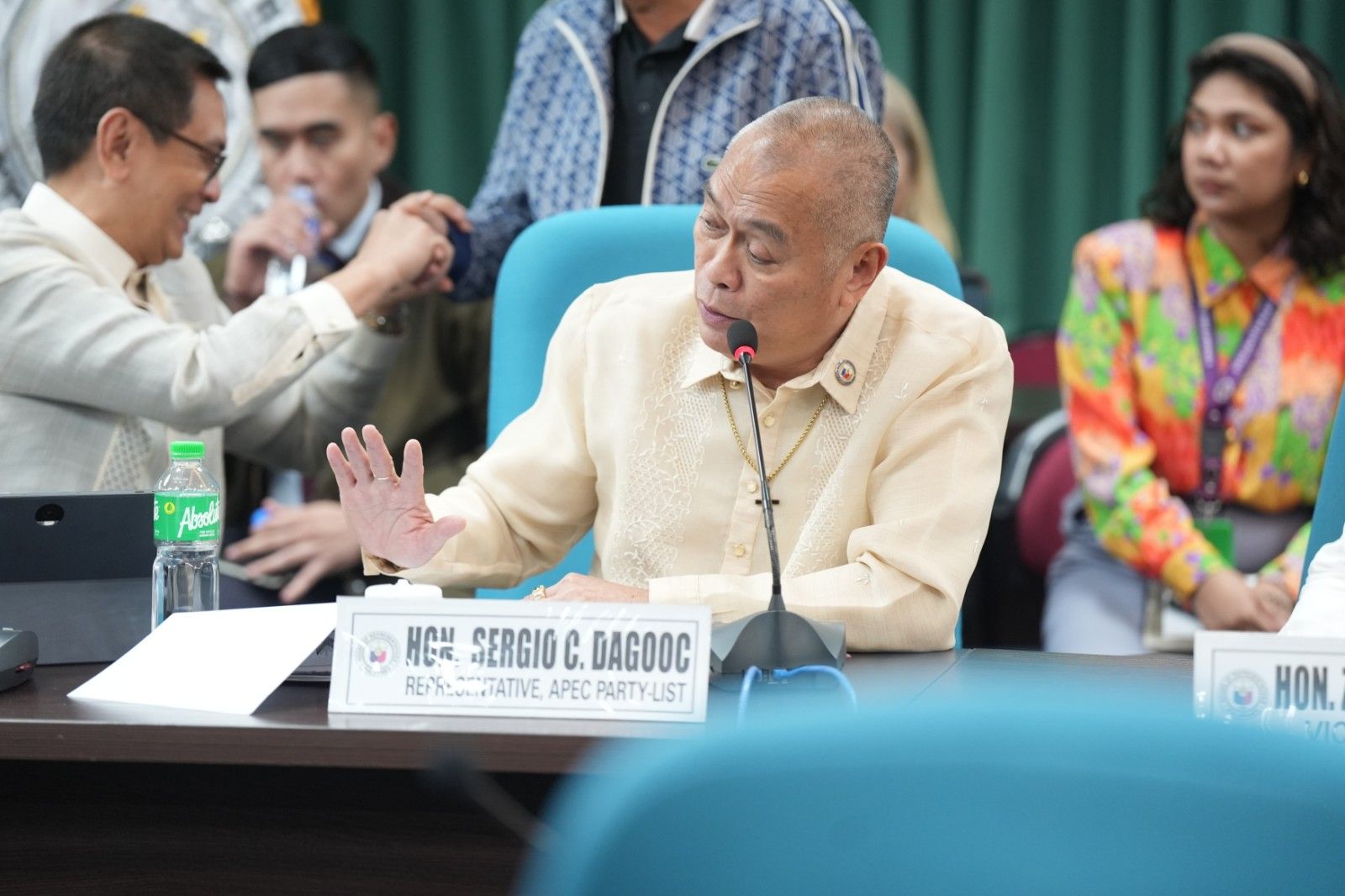At A Glance
- APEC Party-List Rep. Sergio Dagooc has argued that the Energy Regulatory Commission (ERC) should be penalized for allowing the National Grid Corporation of the Philippines (NGCP) to pass on its three percent franchise tax to consumers.
 APEC Party-List Rep. Sergio Dagooc (PPAB)
APEC Party-List Rep. Sergio Dagooc (PPAB)
A member of the power bloc in the House of Representatives has argued that the Energy Regulatory Commission (ERC) should be penalized for allowing the National Grid Corporation of the Philippines (NGCP) to pass on its three percent franchise tax to consumers.
APEC Party-List Rep. Sergio Dagooc raised this during a briefing of the House Committee on Ways and Means Tuesday, Jan. 7 on issues involving the power grid operator, particularly its franchise tax.
Dagooc said the ERC officials who green-lit NGCP's petition to pass on the three percent franchise tax to consumers ought to be held accountable.
"What is the possible legal accountability on the part of the body that approved the resolution authorizing NGCP to pass on the three percent franchise tax to consumers?" Dagooc asked committee chairman, Albay 2nd district Rep. Joey Salceda.
The NGCP had been under fire for the pass on charge stemming for its lawfully mandated payment of franchise tax.
But Dagooc absolved the private entity from any responsibility, and stressed that the grid operator merely acted based on an ERC resolution issued in 2011.
"Hindi naman nila ipasa iyon kung wala yung resolusyon na iyon, kung hindi sila pinahintulutan ng regulator," the lawmaker pointed out.
(Without that resolution and go signal from the regulator, that would not have been passed on.)
ERC Chairperson Monalisa Dimalanta somewhat strengthened Dagooc's point when she confirmed the subsequent suspension of the assailed 2011 resolution.
"We did discuss that Mr. Chair, the commission, but since there was an ERC resolution that allowed it in 2011, we were unanimous in the fact of suspending it moving forward," Dimalanta said.
NGCP legal department representative Pia Zobel Santiago told the committee, "We have suspended starting August 2023 billing the pass-on of the three percent."
Dimalanta noted that from 2018, NGCP paid between P1.3 billion and P1.5 billion in franchise tax every year. She added that the NGCP paid a total of P21 billion in franchise tax from 2016 to 2022.
Consumer refund a must
Responding to Dagooc, Salceda said: "We will prioritize returning the money to consumers than going after ERC."
During the briefing, Salceda championed a prior proposal to reactively refund to Filipinos the franchise tax that had been charged to them. "The NGCP "shouldn't have its cake and eat it too."
From 2016 to 2020, Salceda said ERC-approved revenues were P183.5 billion, while NGCP’s actual revenues totaled P387.8 billion, resulting in P204.3 billion in excess. He says this underscores the urgent need for legislative action.
“There is a 204.3 billion that has been computed by the ERC as being in excess of each WACC (Weighted Average Cost of Capital). And, there is no provision in law. That's the problem,” said the economist-solon.
“Ever since I became a congressman, almost every law I put that pertains to regulated industries, I always make sure that anything above WACC belongs to the people or belongs to the state. If it's PPP (Public Private Partnership), it belongs to the state, because they're actors on behalf of the state,” he said.
“If it's a franchise that deals with the consumers, then the excess revenues belong to the consumers. And, there should be a process of disgorgement, of repayment," he explained.
Salceda also called for a windfall tax on NGCP’s excessive profits, which could be earmarked for consumer subsidies. He cited Electric Power Industry Reform Act (EPIRA) provisions allowing for disgorgement of excess profits as justification.
The Bicol lawmaker emphasized that Congress has the authority to amend NGCP’s franchise to make its tax and profit structures fairer. He urged colleagues to act decisively to ensure that NGCP operates transparently and in the public interest.